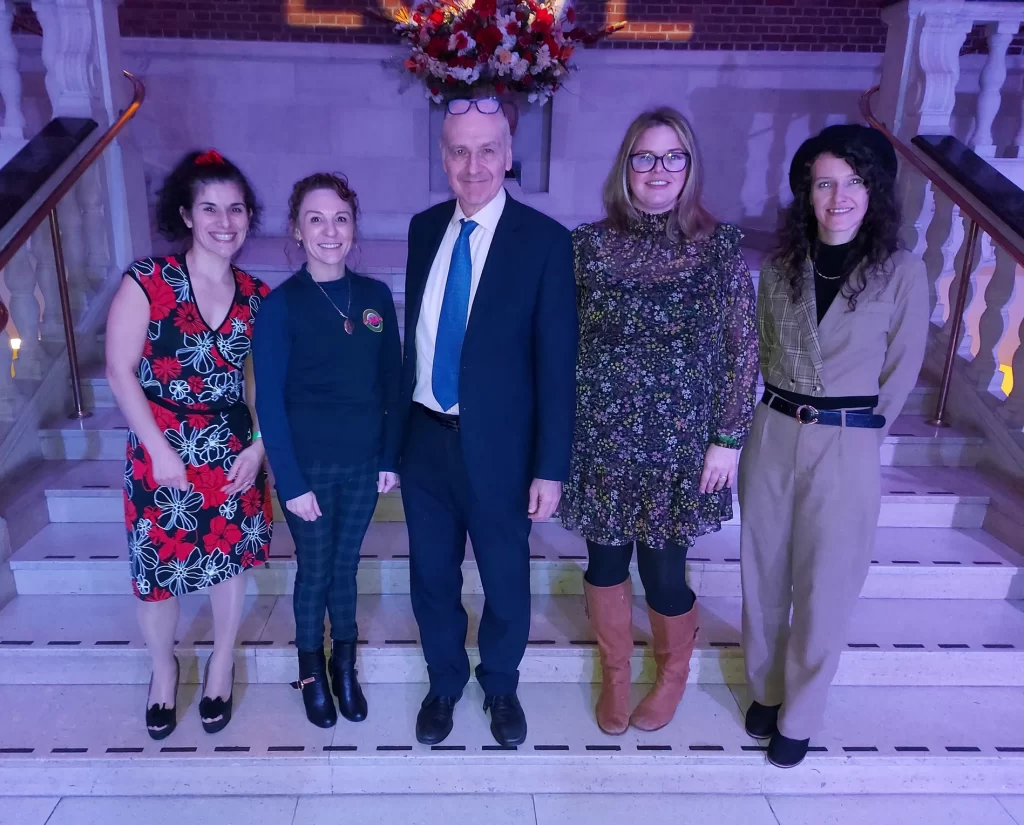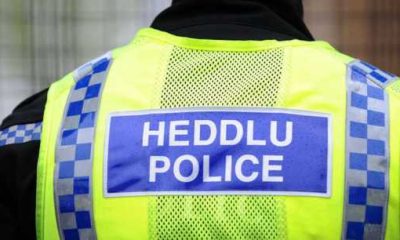Education
Welsh Relationships and Sexuality Education Code: Parental choice vs children’s education

A GROUP calling itself Public Child Protection Wales is fundraising for a legal challenge to the Welsh Government’s Relationships and Sexuality Education Code.
The Code passed the Senedd as part of the Curriculum for Wales.
The group claims to have raised £13,000 of the £100,000 it says it needs to bring the case.
It has already acquired the services of a barrister, Paul Diamond.

CODE ENDS PARENTAL CHOICE
The Code makes Relationships and Sexuality Education compulsory and ends a parent’s right to exclude their children from such lessons.
Public Child Protection Wales says it is for parents to decide the appropriateness of Relationships and Sexuality Education for their children and not for the state to intervene in their right to keep their children either ignorant or enlightened on the subject.
While PCP Wales claims to be a non-party political group, its cause has been taken up by extremist and fringe right-wing organisations who have tried to jump on the bandwagon to publicise their political agendas.
PCP Wales says its aims are “to promote a high standard of Safeguarding and raise awareness of exploitation and abuse of children. We will challenge policies that fail to safeguard and fight for additional investment in Children and young people’s services.”
Its intervention in Relationship and Sexuality Education extends “safeguarding” to include a final parental say over whether a child receives that education from their parents or teachers.
PEMBROKESHIRE AND PCPW
A case against Paul Dowson, county councillor for the Pembroke Dock Central Ward, relating to PCPW’s campaign goes before the Adjudication Panel for Wales later this year.
Councillor Dowson published a Facebook post stating that 0-3-year-olds “will” be taught about masturbation and that the new RSE curriculum “includes teaching 13-year-old boys and girls about anal sex”.
That is untrue, and the Ombudsman described the first of those allegations as particularly “outrageous and unpleasant”.
In an email to a fellow councillor, Councillor Dowson said RSE lesson plans teach 3-year-olds about masturbation and 11-year-olds and upwards about bondage, anal sex, and facial ejaculation.
Those untrue statements do not originate with Paul Dowson. They derive from misinformation peddled by individuals trying to outrage the public and incite opposition to the new Code.
The Ombudsman concluded: “I have seen no evidence that Councillor Dowson has evidence as to the content of the RSE curriculum or its lesson plans over and above that which is publicly available from Welsh Government.”
As a result, the Ombudsman concluded Paul Dowson’s posts were disinformation and alleged they brought his office as councillor into disrepute.
Paul Dowson rejects the allegations and criticisms, which form one part of a disciplinary case to be heard later this year.
CODE CONTENT UNPUBLISHED
While that might appear irrelevant to the campaign headed by PCP Wales, it goes towards the continuing miasma of disinformation, misinformation, and alarmism published on its Facebook page.
While RSE is taught in many countries in one form or another, teaching methods vary. In short: “For Wales, do not see “England”.
Moreover, as the lesson plans and Code content remain – as yet – unpublished, any information about alleged lesson plans and the course content is speculation at best and spurious at worst.
Therefore, the key issue cannot be what the course will teach – or even what campaigners imagine it will teach.
Instead, the core of any legal action against the Welsh Government must be on either “religious exemption” – the position before the new Curriculum became law – or an infringement on a parental choice about what their children are taught.
The religious exemption would be an arguable point only after the Welsh Government issues its guidance on the Code and lessons’ content. There is no engagement of any potential religious right to refuse until then.
PARENTAL CHOICE AND THE RIGHT TO LEARN
So, the case must centre on the question of parental choice.
PCP Wales is clear that’s their main objection – apart from scare stories about what the Welsh RSE Code might mandate.
They say: “[W]e must fight the legislation which mandates this over parental rights, preventing the parent carer from acting in the child’s best interest and be the judge as to what is age appropriate. It is time the adults shouldered the responsibility of sex education in the form of appropriate Safeguarding.”
PCP Wales trusts neither the Welsh Government, local authorities, maintained schools, headteachers, teachers, nor school governors to act appropriately or to gauge what is age-appropriate for a child. They assert parental autonomy and parental choice as the determining factor in what children learn in school.
Carried to absurd lengths, that train of argument would give parents control of everything taught in schools, or at least an ideological say over what their children learn about literature, history, or science.
LEGAL SERVICES OR SUPPORT
PCP Wales has instructed the independent barrister Paul Diamond to fight their case.
According to his website, Paul Diamond is “the leading barrister on the law of religious liberty, including matters of both ethical and social conscience.
“He combines his considerable strength in the field of religious liberty with his knowledge of public and European law. Paul is a specialist in European Human Rights law, EU law and certain aspects of public law.
“He has served as Standing Counsel to the Christian Legal Centre, a sister organisation of Christian Concern as well as the Keep Sunday Special Campaign.”
On its website, the Christian Legal Centre says: “We’re here to safeguard the freedom of Christians to live and speak for Jesus Christ, and to provide legal support for those taking a stand for Jesus and the truth that flows from him.”
The Christian Legal Centre is not a regulated legal practice and has no standing to instruct a barrister to act on behalf of clients.
Its interventions in public interest cases have been the subject of strong judicial criticism, which it rejects.
CLC’s interventions in cases are not meritless.
Freedom of religion and speech underpin civil society. However, the law is secular, created by legislatures, and subject to judicial interpretation.
However, to show the Welsh Government acted in such a way as to either infringe a protected right, whether relying on statutory breach or legal precedent, PCP Wales will have to demonstrate a real loss of a real existing right protected by real law.
THE WELSH GOVERNMENT RESPONDS
A spokesperson said: “It is disappointing that this group continues to promote incorrect and misleading claims about Relationships and Sexuality Education in Wales’s new curriculum.
“Topics like online safety, consent, and sexual health are all included in the Code, but at developmentally appropriate stages so learners aren’t exposed to things that aren’t appropriate to their age and development.
“At a younger age, for example, children will be taught about treating each other with kindness and empathy.
“As children grow older, they will gain an understanding of topics such as online safety, consent, and sexual health – all of which will be handled in a sensitive way.
“These reforms have been welcomed by a number of respected organisations including the NSPCC, the Children’s Commissioner’s Office, and Welsh Women’s Aid.”
Education
Research reveals nearly half of children in Wales had additional learning needs

A NEW study has highlighted the prevalence of additional learning needs, formerly known as special educational needs, among under 16-year-olds in Wales. The findings come with a policy briefing, calling for a robust review of processes used to recognise such issues and more inclusive learning support for all children nationally.
The research and policy reports, led by the University of Bristol and funded by the Nuffield Foundation, found nearly half (47.9%) of children born in 2002/2003 were identified with some form of additional learning needs (ALN) at some point during their schooling. This was shown to have the biggest impact on academic achievement across all Key Stages of their education.
Lead author Dr Cathryn Knight, Senior Lecturer in Psychology of Education at the University of Bristol, said: “Our findings clearly challenge the notion that learning needs only affect a minority of learners. Key common factors increasing the likelihood of being identified with SEN also emerged, emphasising the importance of recognising the child’s environment and understanding their individual situation to effectively support their learning needs.”
Researchers from the University’s School of Education and Swansea University analysed data from more than 200,000 children in Wales, born between 2002 and 2009, to understand the levels of SEN and its impact on academic achievement.
Findings revealed that the earlier the additional needs emerged and were recognised, and the longer their education was spent with these known needs, the less likely they were to meet nationally expected levels of attainment.
Dr Knight said: “Our research suggests the former SEN system in Wales was unable to effectively support students to mitigate the negative impact of SEN on their grades. This underscores the substantial toll of SEN on academic achievement. To improve academic attainment levels in Wales, it is crucial to prioritise effective support for this very large group of learners.”
Learners having free school meals (FSM) throughout their education were found to be four times more likely to be identified with SEN compared to those not in receipt of free meals. Those born in the most deprived neighbourhoods were shown to be even more likely (4.6 times) to be identified with SEN.
The study also showed boys were much (5.5 times) more likely to be identified with SEN than girls. Children with higher school attendance had a lower likelihood of SEN identification and learners born in the summer, so younger in their year group, were three times more likely to be identified with SEN than those born in the autumn.
Dr Knight said: “This raises concerns about the effectiveness of SEN identification processes, particularly given the unexpectedly high number of learners identified with SEN. It suggests a potential issue of over- or under-identification of certain children.”
The main policy recommendations in the report were to prioritise inclusive educational initiatives that recognise and support all children. The substantial impact of SEN on children’s grades, raises questions about how children with learning needs can be supported to show progression within the education system. Therefore, consideration of more inclusive assessment practices is recommended. The report also calls for current methods used to identify learning need to be rigorously reviewed, with a new focus on ensuring accuracy, fairness, and inclusivity.
The research mirrors similar national findings. Evidence from the Education Policy Institute in England also found a high level (40.7%) of SEND (Special Educational Needs and Disability) identification. Other research, published in the British Educational Research Journal, has also shown that children with SEND in England are also far less likely to meet expected learning standards than their peers at Key Stage 1.
Dr Knight said: “We also need longer-term evidence within Wales and across the UK in order to develop a fuller understanding of the challenges. This includes possible systematic issues with how learning needs are recognised and their subsequent impact on attainment.”
Education
School children focus on Pembrokeshire’s renewable energy future

FENTON COMMUNITY PRIMARY SCHOOL welcomed renewable energy experts to help Year 5 and 6 learners broaden their knowledge as part of their Marine Energy Project.
During the summer term Blue Gem Wind, Pembrokeshire Coastal Forum and the Darwin Experience have discussed Pembrokeshire’s importance in the renewable energy sector and low carbon technologies with the school children.
Learners designed and built models of different anchorage structures for offshore turbines, and learnt from the Darwin Centre about the different marine organisms that might colonise them.

They pitched their design ideas, with a combination of class designs being built and deployed at the Marine Energy Test Area (META) in Milford Haven by Pembrokeshire Coastal Forum.
The visits have inspired many new ideas and possibilities for the future of the learners.
Summer Marshall (Year 6) explained: “It was a great opportunity for our designs to be actually made into something for a real-life purpose.”
“If it wasn’t for this project I wouldn’t have learned about the importance of marine habitats and how these are linked to our future,” added TJ Hill (Year 6)
“It is really important because a lot of future jobs will be based around renewable energy and technology,” said Milly Badger (Year 6).
“From having Blue Gem Wind, META and Darwin visit, it’s made me think about a job in renewable energy,” added Oscar Davies (Year 6).
Acting Executive Headteacher Gareth Thomas said: “The project has enabled development of careers and work-related experiences with our learners. Direct industry engagement has been crucial to motivate our learners to think about the future jobs in Pembrokeshire and the life they may lead here.”
Year 5 and 6 teachers Leah Hackett, Matthew Vaughan and Mike Lowde agreed that many of their pupils could work in the renewable industry in future.
“Hopefully, after this, we have a group of enthusiastic pupils who already have a keen understanding of the benefits of renewable energy and the place it holds in Pembrokeshire and the wider world,” they added.
Education
Pupils delight in ice cream treat from Pembrokeshire’s number one van

CHILDREN at Ysgol Caer Elen in Haverfordwest were treated to a delightful surprise on Tuesday when they were all given the opportunity to enjoy ice cream, generously provided by Mr McGeown and his family.
The delicious ice cream, a highlight of the school’s summer celebrations, was not just a treat for the pupils but also a testament to the McGeown family’s commitment to supporting educational projects. The funds raised by the family have been donated to the school, aimed at enhancing various school initiatives.
The joyous event was made even more special by the efforts of volunteers Martin, Sian, Amirah, Jack, and Alyannah, who served the ice cream. Their contribution ensured that the occasion was filled with a wonderful and happy atmosphere.












The school extends its heartfelt thanks to Mr McGeown and his family for their generosity and support. Their donation will play a crucial role in the continued development and success of school projects, benefiting all pupils.
“We are incredibly grateful to Mr McGeown and his family for their kindness and support,” said Mr Dafydd Hughes, the headteacher of Ysgol Caer Elen. “The ice cream treat brought immense joy to the children and added to the spirit of our summer celebrations.”
Ysgol Caer Elen, a pioneering Welsh-medium school catering to students from ages 3 to 16, prides itself on its vibrant community and commitment to high-quality education in Pembrokeshire. The school’s ethos centres on creating a caring and inclusive environment where every pupil is encouraged to achieve their best and develop their skills for the 21st century
The community looks forward to seeing the positive impact of the McGeown family’s contribution, as the school continues to thrive with the support of dedicated and caring individuals.
-

 Education5 days ago
Education5 days agoMilford Tesco worker achieves Oxford dream and lands top legal job
-

 Crime4 days ago
Crime4 days agoHaverfordwest man admits having nearly 1000 child and animal images
-

 Crime4 days ago
Crime4 days agoYouth set to appear in court over serious sexual offences
-

 Crime4 days ago
Crime4 days agoPolice investigating after man injured during altercation in cemetery
-

 Education4 days ago
Education4 days agoPupils delight in ice cream treat from Pembrokeshire’s number one van
-

 Crime4 days ago
Crime4 days agoTown centre ‘stinking of skunk’ as police strip cannabis farm
-

 Crime3 days ago
Crime3 days agoFag-butt police court summonses spark debate in Pembrokeshire
-

 News6 days ago
News6 days agoProposal to give firefighters a council tax discount to go to Cabinet









































